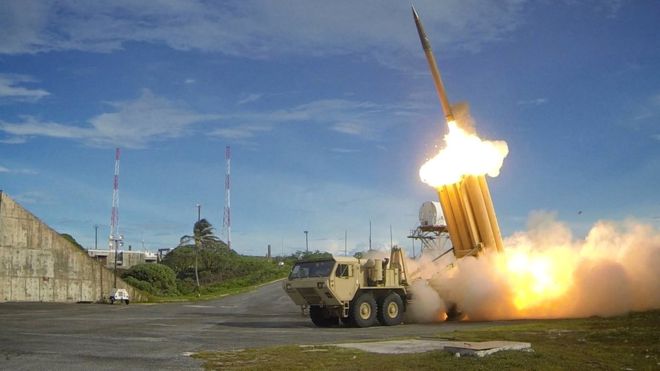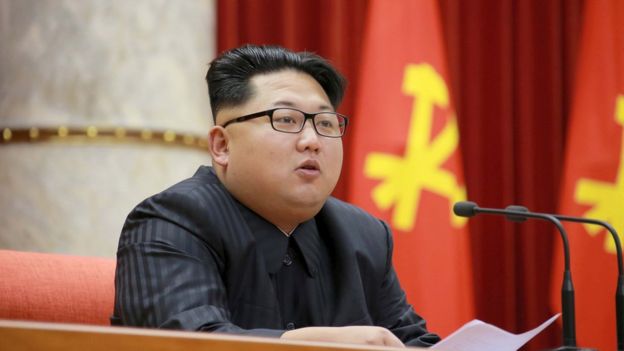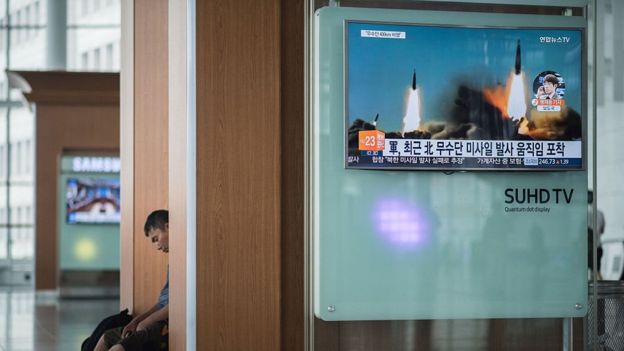US and South Korea agree THAAD missile defence deployment

The US and South Korea have agreed to deploy a controversial missile defence system, in the wake of intensifying threats from North Korea.
The Terminal High Altitude Area Defense (THAAD) anti-missile system will be deployed solely to counter the threat from Pyongyang, a statement said.
It is unclear exactly where it would be sited and who would have final control.
Discussions began in February after North Korea fired a long range missile, but China has consistently objected.
The THAAD system would be able to detect North Korean missiles and shoot them down, but China says it would seriously damage the security interests of countries in the region.
The BBC's Korea Correspondent Stephen Evans says that Beijing fears the system's radars would be able to see far into its territory. China, the North's closest ally, supported the most recent UN sanctions after North Korean nuclear and missile tests.
"South Korea and the US have made the joint decision to deploy the THAAD system as part of a defensive action to guarantee the security of the Republic of Korea," South Korea's Defence Ministry said on Friday.
It will be deployed "as soon as possible."
The announcement comes after North Korea denounced US sanctions on Kim Jong-un, calling it an "open declaration of war", after the leader was accused of human rights abuses.
The US had put sanctions onto the leader for the first time, calling him directly responsible for violations in his country.
Pyongyang has warned that it will close down all diplomatic channels with the US unless the blacklisting is revoked, reported news agency Yonhap.
North Korean leader Kim Jong Un attends the 3rd Meeting of Activists in Fisheries under the Korean People
The measures freeze any property the individuals have in the US and prevent US citizens doing business with them.
"Under Kim Jong-un, North Korea continues to inflict intolerable cruelty and hardship on millions of its own people, including extrajudicial killings, forced labour, and torture," the Treasury statement said.
It estimates that between 80,000 and 120,000 prisoners are being held in North Korean prison camps where torture, sexual assault and executions are routine.
Политика конфиденциальности | Правила пользования сайтом









